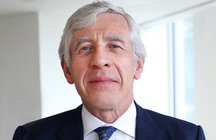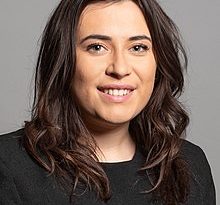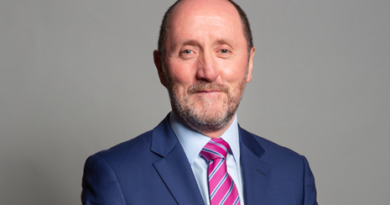Jack Straw – 2003 Speech on the UK and the Muslim World
Below is the text of the speech made by the then Foreign Secretary, Jack Straw, in Jakarta on 9th January 2003. The speech was on the UK and the Muslim World.
Three months ago our countries were united in grief. The terrorist atrocity in Bali claimed the lives of innocents from many nations and faiths, including 26 Britons and an even greater number of Indonesians. As the terrorists no doubt intended, it tragically dealt a shattering blow to one of the most important sectors of your economy.
No political or religious cause can justify the terrorists’ actions. Their crimes have rightly been condemned by politicians and leaders of all faiths around the world. Al Qa’ida and its sympathisers claim to be waging a ‘just war’, in the name of Islam, against the western world. But the Bali atrocity simply confirmed what peace loving peoples of all faiths have long known. The divide in the modern world is not the so-called ‘clash of civilisations’ between Islam and the West. The divide is between order and chaos.
The first objective of any democratic government is to deliver an equilibrium of order and freedom for its citizens. Since the end of the Second World War, we have seen the establishment of a host of multilateral institutions to make these principles a unifying force in international affairs. In Europe, the EU and NATO have helped to make the past 50 years one of the most stable eras in the continent’s history. More recently in South East Asia, ASEAN has helped to establish a secure foundation for Indonesia’s relations with its neighbours.
There are two great modern threats to global security –international terrorism and unstable or rogue regimes seeking to acquire weapons of mass destruction. Both threats profoundly disturb that equilibrium between order and freedom and introduce a potential new dimension of chaos to international affairs.
Indonesia and the United Kingdom should unite with the international community to confront these threats. Our immediate objective must be to bring the perpetrators of the Bali bombing to account. Thanks to the unflagging efforts of the Indonesian authorities I believe that we are closer to this goal.
But if we are to establish a fitting memorial to the victims of the Bali tragedy and strengthen global security, we will have to do more than simply mete out justice to the terrorists. We will have to tackle the mistrust and misapprehensions which bedevil relations between the west and the Islamic world and which in turn allow the terrorists to secure new recruits for their twisted cause. The promotion of peace and reconciliation between all faiths must therefore become an objective of politicians and religious leaders alike.
Last year, following the atrocity of 11 September the leaders of the three great monotheistic faiths, Islam, Christianity and Judaism, meeting in the Egyptian city of Alexandria, proclaimed that they shared values as much as they shared prophets. They declared that, ‘According to our faith traditions, killing innocents in the name of God is a desecration of his Holy Name, and defames religion in the world’.
These fine sentiments find an echo in this country’s national motto ‘unity in diversity’ (Bhinneka Tungal Ika) which I first learned when I attended an interfaith memorial for Bali at the Indonesian Embassy in London. This principle has guided Indonesia for almost 60 years. It should also lie at the heart of a new relationship between the west and the Muslim world.
But if this aspiration is to become a reality, Indonesia will have to play a leading role. We will achieve nothing without the engagement of the largest Muslim country in the world. Thanks not least to Nahdlatul Ulama and Muhammadiyah, extremism has remained largely on the fringes of Indonesian Islam. I pay tribute to the work of both organisations for the stand they have made against terrorism and for acting as a force for moderation and partnership with the west for almost a century. In a region long noted for its commitment to religious toleration, you have helped to build Indonesia’s reputation as one of the Islamic world’s most open and diverse countries. One American scholar, Robert Heffner, recently noted that, ‘Nowhere in the Muslim world have Muslim intellectuals engaged with the ideas of democracy, civil society, pluralism, and the rule of law with a vigour and confidence equal to that of Indonesian Muslims’. Long may that continue.
THE UK AND THE MUSLIM WORLD
Today I want to share with you my thoughts on how the United Kingdom can reciprocate your efforts, and help to build trust between the west and Muslim peoples across the world. I would not wish to overstate the extent of our influence. The UK alone will not determine the future course of this relationship. But I think our history and the extent to which Islam is now an everyday fact of life in the UK, gives us some unique insights and leaves us well placed to act as a force for progress.
My country has one of the largest Muslim communities in Europe. Around 2 million Muslims have helped to make the UK what I believe is one of the most ethnically diverse and tolerant countries in the world.
The vast majority of British Muslims have integrated themselves into our society, spreading prosperity to urban and rural communities across the country. And they are making a vital contribution to British democracy. Let me illustrate this point with a personal example.
As a Member of Parliament, I represent the interests of 100,000 constituents. In my constituency, Blackburn, there are no fewer than 23 mosques and more than 25,000 Muslims. I represent their interests as much as those of the other 75,000. I have a permanent reminder of the Muslim influence within my constituency. My house is opposite a Madrassah and I awake, at the back of the house, to hear the call to prayer.
We have Muslim Members of Parliament who have to attract the votes of British non-Muslims to win their seats. For example, it was a majority of non-Muslims in a district of the city of Birmingham who elected my colleague, Khalid Mahmood, as a Member of Parliament in 2001. Some of you may remember him when he and other British Parliamentarians visited Indonesia in July last year.
The size and importance of our Muslim communities is such that no British Government – present or future – can afford to turn a blind eye to their domestic or international concerns. Britain’s Muslims are preoccupied with the same domestic issues as all of our voters: decent schools, high standards in healthcare provision and a prosperous economy. But when it comes to international issues, they are particularly concerned about developments in the Middle East and North Africa, and South and South East Asia.
Almost all of the Muslims in my constituency come from South Asia, evenly split between Pakistan and India. As tensions between India and Pakistan last year threatened to spiral into a full-scale conflict, I was reminded on a daily basis of the close family ties binding communities in the United Kingdom to two of the countries in that region, and that for both communities, national loyalties – to Pakistan and India – were as important as religious ones.
THE MIDDLE EAST
Last year, as the India/Pakistan crisis abated, developments in the Middle East moved to the centre stage. Tragically, Israel and the Occupied Territories, which have seen so much grief over decades, have suffered appallingly in the last two and a half years. Over two and a half thousand Israelis and Palestinians have been killed. Many more have been injured. Life on both sides of the green line has been disrupted. We must not let it go on. And we have to work unremittingly for a better future for the region as a whole.
To achieve that we have three central objectives for the region:
– to secure a just and lasting peace settlement between Israel and the Palestinians;
– to remove the threat posed by Saddam Hussein’s weapons of mass destruction both to his neighbours and to the wider world;
– and third, to work in partnership with the governments of the region to promote social and economic development and democracy.
Turning to the first of these objectives, almost all British citizens – Muslim and non-Muslim alike – share the hope that we can secure a peace settlement between Israel and the Palestinians. The Prime Minister, Tony Blair, underlined Britain’s support for this goal last year, and warned of the consequences of failure to deal with a problem which ‘hangs like a dark shadow over our world……providing the cover under which the fanatics build strength’.
These are dark times for advocates of a lasting peace. Last Sunday suicide bombers slaughtered 23 innocent civilians in Tel Aviv. There must seem no end to the cycle of violence.
But we must not allow the carnage to breed fatalism. Nor to have the agenda set by the terrorists. The emerging international consensus on the broad outlines of a final settlement does offer hope. Last year, the United Nations Security Council unanimously passed a Resolution supporting, for the first time, a two-state solution which guarantees an end to the Israeli occupation, a viable state for the Palestinians and security for Israel within its borders. We voted for this Resolution. It is our vision, and I look forward to pursuing it with both the new Israeli Government and the Palestinian Authority.
IRAQ
A peace settlement between Israel and Palestine would remove one of the great threats to global stability. But the Middle East and the wider world will never be secure as long as Saddam Hussein retains his weapons of mass destruction.
I know the prospect of international action to disarm the Iraqi regime by force concerns people in Britain and Indonesia alike. In recent months, we have worked tirelessly towards a peaceful outcome to this crisis, based on full Iraqi compliance with UN resolutions. The UN Security Council supports this goal, and in October voted unanimously in favour of UNSCR 1441. This resolution presents Iraq with a pathway to peace and disarmament via UN inspections rather than force.
However, the consequences of a failure of nerve to deal with the threat posed by Iraq’s weapons of mass destruction are potentially devastating for Muslims and non-Muslims alike. The world would then have emboldened a dictator who had previously shown no mercy in turning chemical weapons against the Iraqi people and the Iranian army. In the Iraqi town of Halabja fifteen years ago, 5,000 civilians were gassed to death as Saddam pursued a campaign of genocide against the Kurds.
On the other hand, full disarmament of Iraq’s weapons of mass destruction would be a major boost to all of those who support an international community based on reciprocity and the rule of law. In the 1970s and 1980s, the Iraqi regime flouted its commitments under a range of international treaties and conventions to prevent the proliferation of weapons of mass destruction. Since 1991, Saddam Hussein has ignored repeated UN resolutions calling for Iraq’s disarmament. If he continues to get away with it, other would-be proliferators will take heart and the world will become a far more dangerous place.
Contrary to some perceptions, particularly in the Arab region, the international community’s quarrel is with Saddam Hussein, not the Iraqi people. They deserve much better. Iraq is a country with a talented population, a country that is potentially rich and successful. We want to welcome it back into the international fold. We want the people of Iraq – Kurdish, Sunni and Shia Muslim alike – to be free to live fulfilling lives.
Similar concerns lay behind the four major military campaigns Britain has fought during the last decade. On each occasion, in Kuwait in 1991, Bosnia in 1995, Kosovo in 1999 and Afghanistan in 2001 the effect has been to help Muslims suffering oppression. In each of these countries, as a result of military intervention led by the US and involving British and other troops, it is millions of Muslims who have been released from the threat of brutality and intolerance. These actions highlight the fact that, contrary to popular myth in some Muslim countries, neither the UK nor the US is bent on subjugating Islam. Its actions with the USA speak louder than words.
MYTHS ABOUT THE MUSLIM WORLD
I regret to say that similar, damaging myths about the Muslim world are prevalent in the west. One of the most pernicious is that Islam and democracy are mutually exclusive.
Indonesia has been making the transition to democracy for the past four years. Years of struggle against Suharto’s dictatorship deepened your commitment to democracy and peaceful reform. It was never going to be easy. The transition in the UK, from autocracy to democracy took centuries. Freedom of political expression has inevitably triggered demands for less central control and greater local autonomy. This is a particularly difficult balancing act in a country as ethnically diverse as Indonesia, where the challenge of administering a vast archipelago of over 17,000 islands would stretch the skills of the most proficient administrator.
I want to applaud the progress you have made so far. In just four years Indonesia has consigned dictatorship to the past. Meanwhile in Turkey – another of the world’s largest Muslim countries – we have just witnessed a peaceful change of government and the arrival in power of an Islamic party committed to respect for the role of Islam and to the values of liberal democracy – and the development of strong relations with the west. Taken together, these developments are proof – if it were needed – that Islam and democracy are compatible, and that societies founded on profound religious beliefs can also subscribe to the principle of freedom of political expression.
But democracy has frankly not made the same strides in the Arab world. The Arab Human Development Report, published by the UN last year, portrays a region that is lagging behind others in individual freedom, women’s empowerment and economic and social development. I do not claim that democracy offers a panacea for all of the region’s ills. But history shows that democracy is usually a pre-requisite for economic prosperity, tolerance and political progress.
We can draw an interesting parallel with central and eastern Europe. Fourteen years ago this region’s prospects were grim. Four decades of communist rule had resulted in economic stagnation as well as creating a dangerous imbalance between order and freedom. Following the fall of the Iron Curtain, political and economic reforms acted as a catalyst for a burst of wealth creation and, more importantly, freedom creation. This historic transition is almost complete. In 2004, eight countries from the former eastern bloc will join the EU and we will have witnessed the unification of Europe within a generation.
The experience of the Cold War tells us that countries plagued by a lack of economic opportunities and closed political systems simply fuel the alienation of their citizens. In central and eastern Europe this sense of alienation found expression in the tumultuous events of 1989. The UNDP report shows that a similar sense of alienation exists in parts of the Arab world. I believe that this has partly found expression in acts of terrorism against western interests, and a general mistrust of our motives.
CLOSING REMARKS
By showing tolerance to other faiths and welcoming debate within Indonesian Islam, you have shown a path which I believe other Muslim countries should follow. That spirit of tolerance helped you recently reach a peace settlement in Aceh which I warmly welcome.
Indonesia is extraordinarily rich in its religious linguistic and ethnic diversity. Within that you are rightly proud of your majority Islamic faith and traditions. Traditions that have embraced a secular state and universal values. Together I believe we share a common purpose in building and promoting the path of reconciliation. Let us make this our shared task as we build a new relationship between the west and the Muslim world.


